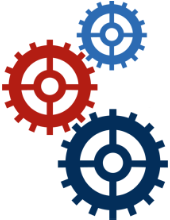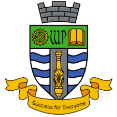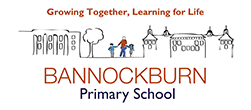ICT & Computing
ICT & Computing
Head of Department: Mr Coote CCoote@woolwichpolyboys.co.uk
A successful Poly Computer Scientist is one who is equipped with the rigorous skills and knowledge to enable him to become a pioneer in this emerging and exciting technological world. He will have strong mathematical skills, a problem-solving mind-set, and have knowledge of algorithms, laws, and computational theory, in addition to the staying-power required for this demanding subject. The jobs of the future have their foundation in the developments of today, and the successful Poly Computer Scientist will have the essential disciplines and habits needed to tackle these and yet unknown challenges.
A successful Poly Information Technology student will be confident in using a range of different software and have knowledge of the hardware involved in many different computer systems. The student will be able to identify threats both physical and in the cyber world to make clear suggestions on computer systems security and safety. An ICT student will be able to express their knowledge verbally and be confident in their written work, being able to create a range of different documents to suit different purposes, using analyst skills and manipulating data to produce strong arguments.
Key Stage 3
All pupils study Computing and IT at Key Stage 3 where we cover a comprehensive range of topic areas. The Computing curriculum builds on the teaching at Key Stage 2 and covers three main strands:
1. Digital Literacy and E-safety
2. Information Technology
3. Computer Science
Each half-term students complete either a new topic or build on topics previously taught, covering the three main strands mentioned above. Within these units we have placed an emphasis on developing knowledge, understanding and skills.
support materials and useful links
Key Stage 4: Computing
OCR GCSE Computer Science
Welcome to KS4 OCR GCSE Computer Science! As a department, we believe learning should be as dynamic and exciting as the technology we explore. From understanding how computer systems work behind the scenes to creating innovative algorithms and code, our goal is to build your confidence and spark your curiosity. As you prepare for exams, we encourage you to deepen your understanding, knowing that the resources, support, and inspiration woven into our teaching will keep you motivated. Embarking on this ever-evolving journey will unlock endless possibilities as we explore the fascinating world of computer science together!
Feel free to explore the resources below to support your learning journey!
-
J277/01: Computer systems - 50% written exam - externally marked.
-
J277/02: Computational thinking, algorithms, and programming - 50% written exam - externally marked.
support materials and useful links
Key Stage 4: ICT
WJEC Level 1/2 Vocational Award in ICT (Technical Award)
This course requires dedication and independent effort. You’ll need to allocate time to work through tasks, read instructions carefully, and follow guidance to develop practical skills.
Unit 1 explores how hardware and specialist software are used across different areas of society—business, education, and home. You’ll investigate real-world applications and understand the impact of technology in various contexts.
Unit 2 builds on this by introducing you to databases, spreadsheets, automated documents, and image editing. You’ll learn how to use software like GIMP to create logos, develop business systems with spreadsheets and databases, and use mail merge features in Word to communicate professionally with clients.
Success in this course means being able to apply your knowledge to solve problems and communicate effectively in vocational settings. It’s hands-on, practical, and designed to prepare you for real-world ICT challenges.
-
Unit 1: ICT in Society 40% – On-screen exam (externally marked)
-
Unit 2: ICT in Context 60% - (internally assessed, externally moderated)
Support Materials & Useful Links
There are support materials available for the WJEC Level 1/2 Vocational Award in ICT that can help students develop their skills and understanding. Here are some useful resources:
Department Information
Any specialist equipment required?
Computing - Computer with Python programming language
IT – creating graphics using GIMP
Enrichment opportunities
- KS3 STEM Programming Drones - https://www.code4drones.co.uk/stem-enrichment-days
- Clubs or Interventions
- After school/lunchtime clubs (everyday), weekend intervention.
- Robotics using Lego After School Club
- Programming Drones After School Club
- Digital Leaders After School Club
Future careers/university courses.
This course provides a wide range of career options, as well as a route into further and higher education. Possible careers include IT Consultant; Games Developer; Software Engineer; Network Engineer; Systems Analyst; Multimedia Programmer; Applications Developer; Information Systems Manager; IT Technical Support Officer; Database Administrator; Project Manager.
Social, Moral, Social, Cultural (SMSC) and British Values
From a spiritual perspective, Computer Science provides young people with a framework and set of disciplines that will help refine their general awareness and build their self-worth. This gives the work greater meaning and purpose.
Programming is a challenging discipline to learn and pupils have to apply their concentration and intelligence very deeply. They can become much more enlightened about their strengths and weaknesses, as they navigate the process of producing code that doesn’t work and try to determine how to correct it. Morally, pupils learn about and participate in discussion on the legal framework that surrounds use of ICT in the world:
-
The Data Protection Act
-
The Copyright, Designs and Patents Act
-
The Computer Misuse Act
All of these laws were developed based on a moral and ethical foundation. Pupils are taught about how to discriminate about information they come into contact with on the Internet. Socially, they learn about teams and how they work and the different roles that they can play in getting projects completed. Age appropriate and positive use of social networking sites is promoted using content from the government organisation CEOP (Child Exploitation and Online Protection Centre). Culturally, all of the projects require pupils to look at the needs of the people their solution is serving.
Pupils are encouraged to conduct research, analyse it and then look at how design and presentation of information. Examples of TV and video can make their work more professional in standard.





